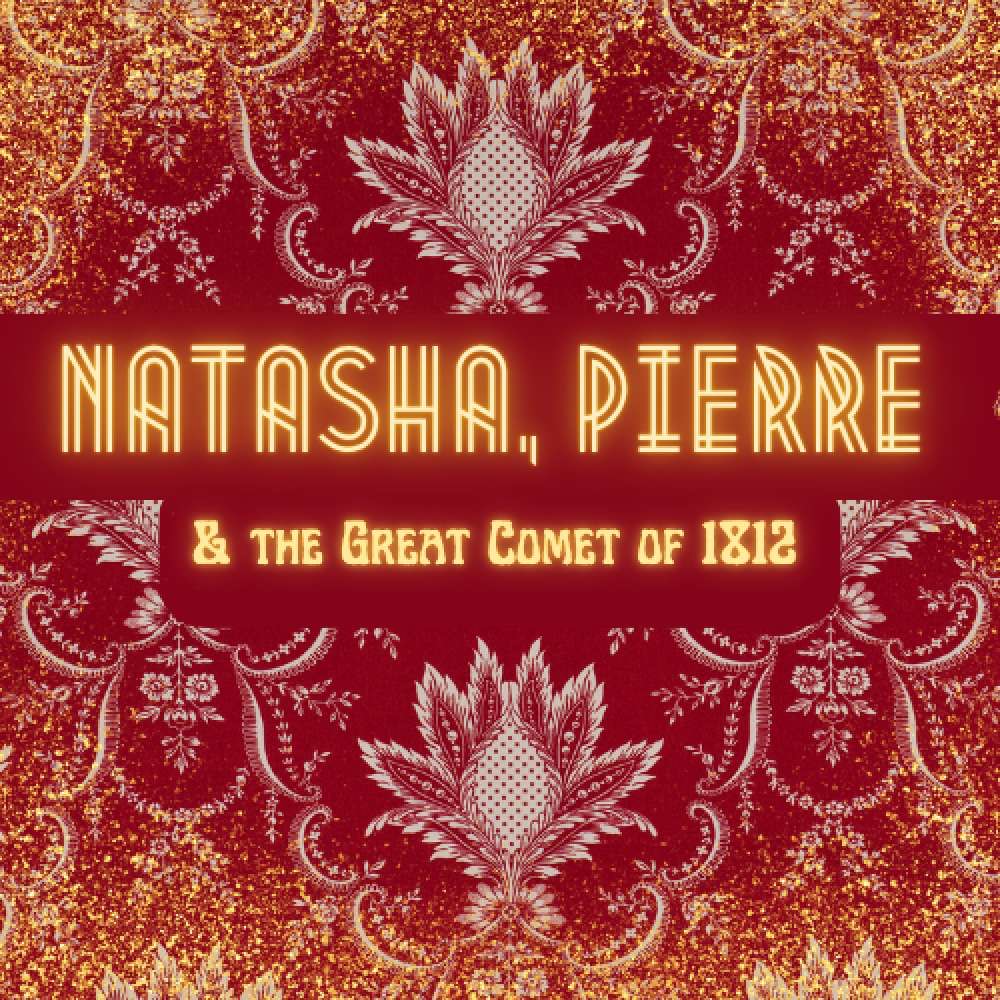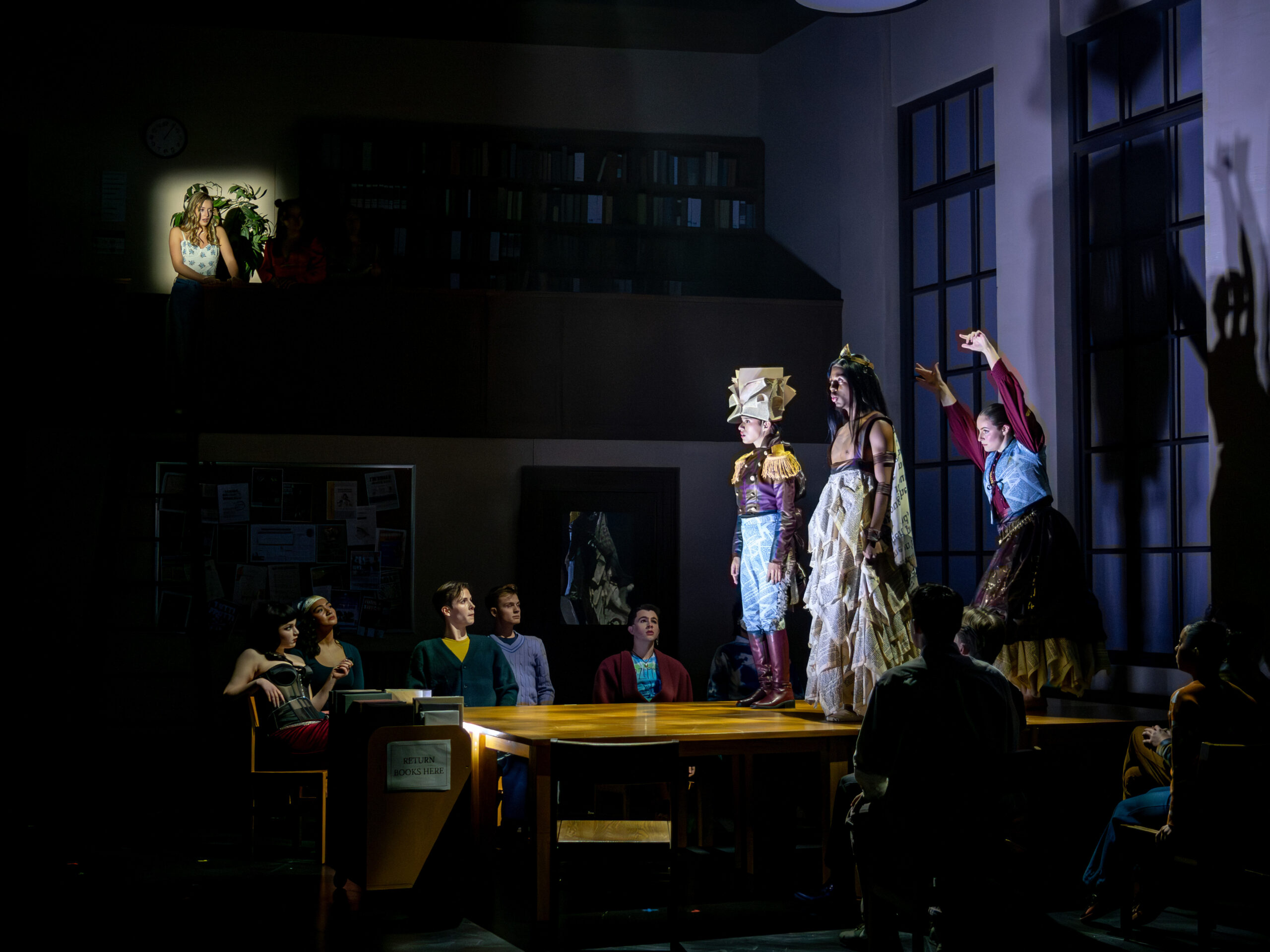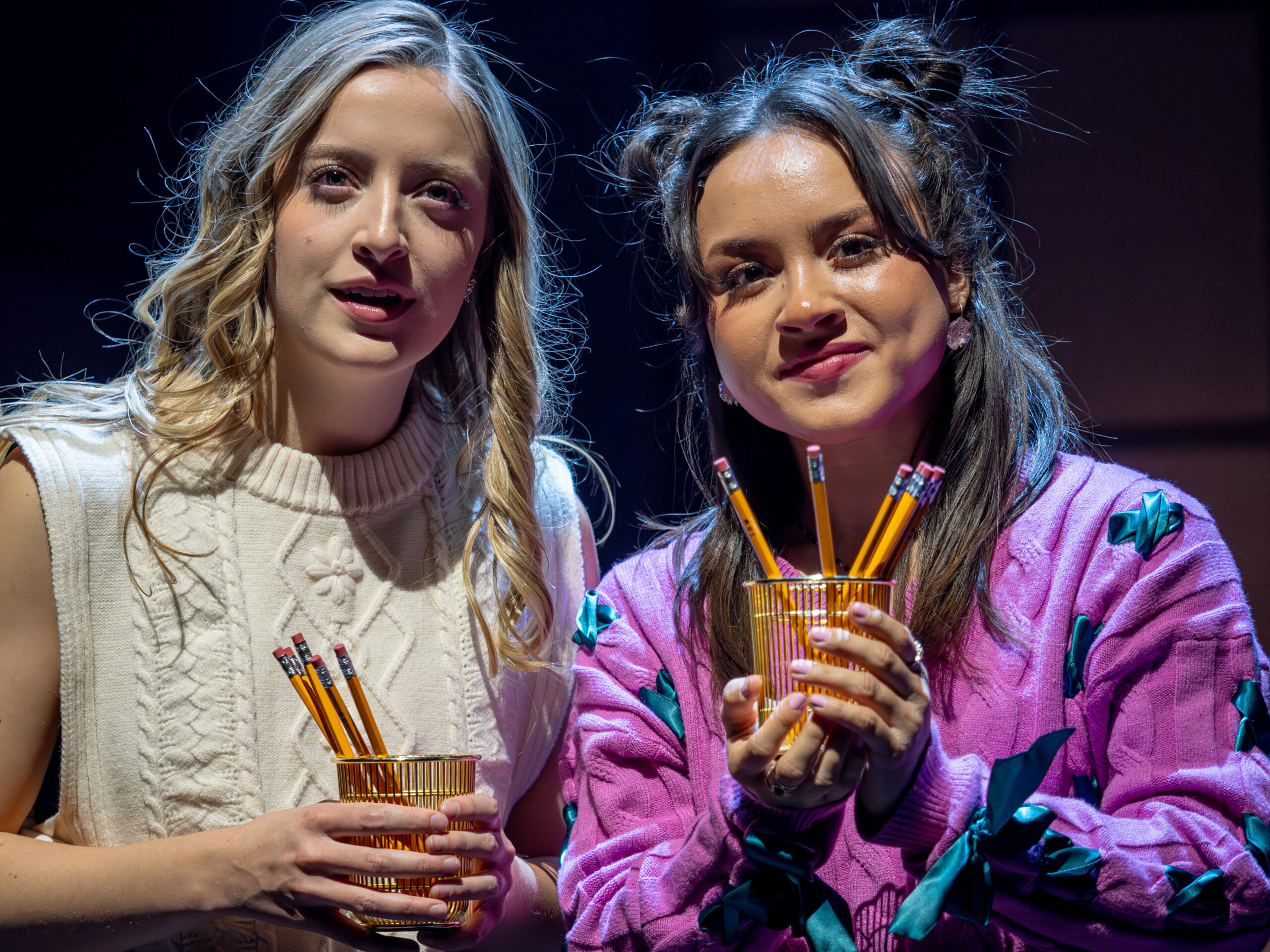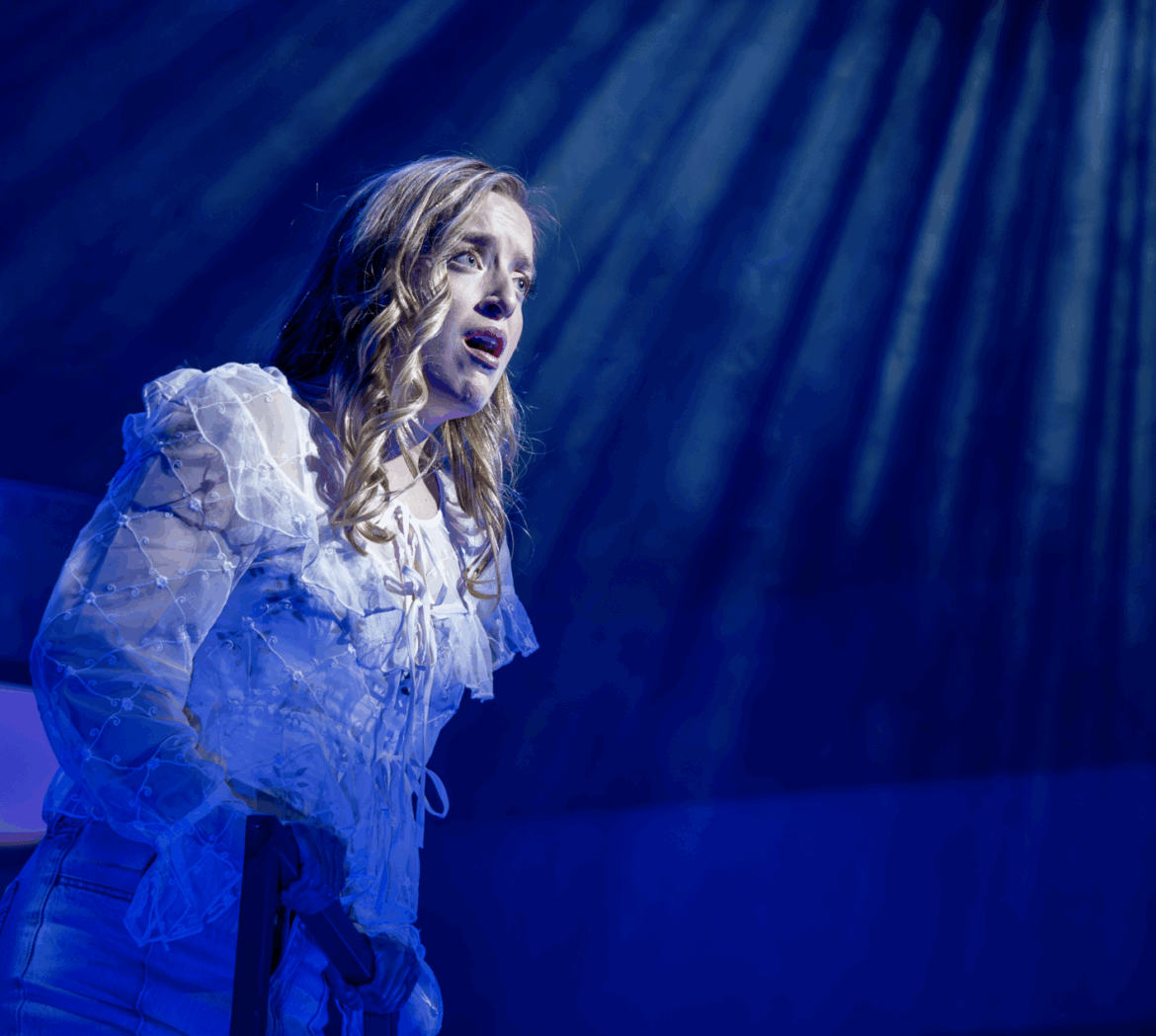The scaling and interest to describe a musical like Natasha, Pierre, & the Great Comet of 1812 is quite an enigma.
The shows follows the young and impulsive Natasha Rostova as she falls for the rakish and careless Anatole Kuragin while waiting for her fiancé, Andrey, to return from war. When Pierre Bezukhov, a brooding outsider experiencing an existential crisis, learns of the scandal, he must pick up the pieces of her ruined reputation and, in the process, find his own redemption.
To adapt Volume II, Part V of Leo Tolstoy’s War and Peace into a sung-through, electro-pop opera, it was certainly going to be a challenge to bring this story for audiences to enjoy when it first opened on Broadway.
However, the same applies with bringing this show to be experienced in brand new age for Montclair State University students.
This was the challenge that was presented and mastered by director Ryan Dobrin.
“I really was trying to figure out how to place the show in the bodies of these students and relate a show that, although it’s a new musical, is about a really old book, set in a time a while ago, and figure out the ‘why now,'”Dobrin said.
Instead of presenting the story in typical 19th century Russia, with characters telling the story traditionally, this production adapts the material to follow college students in their library learning about the story as they take on the characters to get more involved and engaged with the material.

Dobrin underlines the bold nature of this artistic liberty.
“A lot of the approach of the concept was, what are the ways in which we can relate to that sort of big open freedom and rash decision-making… it’s very similar to the way these characters are living their lives in the show,” Dobrin said.
This show takes many liberties in terms of fleshing out scenes, based on their environment, as shown in both the set and especially in the way these numbers are choreographed.
Lizzie Johnson, a senior musical theater major and one of the assistant choreographers, swings and dance captain for this production, notes how the choreography compares to other show productions.

The Cast of Natasha Pierre and the Great Comet of 1812 performing The Opera
John J. LaRosa l The Montclarion
“A lot of our movement is much more pedestrian-style based than a lot of other productions of this show is and obviously you don’t have as much of the 19th century social dancing emphasis in this choreography,” Johnson said. “We do see some of that, but we’ve done as much as we possibly can to evoke the feeling [that] we are just people first and dancers second.”
This is evident in the way the actors use the choreography to properly highlight the characters’ actions.
However, the main theme that comes across in this production is the humanity that this cast brings to their roles and this story.

Bridget Sindelar as Natasha and Anjelica Soto as Sonya performing "Sunday Morning"
John J. LaRosa l The Montclarion
Anjelica Soto, a junior musical theatre major who plays Sonya Rostova, explained the internal process of playing a character in this production.
“A lot of like our moments on stage rely on our own discoveries within what it means to be playing these characters and staying true to who they were in the story and in the book originally,’ Soto said. “But also, how can they adapt and change a little bit to reflect not only how we feel about the characters, but also how they look playing these more modern [reflections of] students.”
Soto emphasized a key takeaway from working on the show was learned from Grace McLean, who played Maria Dmitryevna in the original Broadway and off-Broadway production.
She quoted McLean, saying, “I would love people to take away that even in people’s… ugliest moments, that we can still understand them and love them.”
“No one is truly bad,” Soto emphasizes. “They’re just necessarily, maybe not understood in the same way. People act out of pain and out of hurt, but if we can find ways of understanding them and loving them, maybe we can have a better life, better community, and a better world.”
Bridget Sindelar, a junior musical theatre major who plays the titular Natasha Rostova, hopes the audience take away from this production whether they’ve seen the original Broadway production or are experiencing it anew.
“I hope people take away the message to stay present and look out for others,” said Sindelar. “There’s a lot of commentary in this show about war and conflict and how people can either choose to acknowledge it or brush right past it. And I think this show can serve as a reminder to see the problems happening in front of us and in our world and act and take action, to fix them, to make your influence.”



